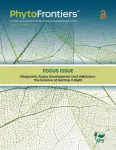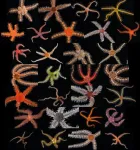(Press-News.org) Improving diagnosis in health care is a moral, professional and public health imperative, according to the U.S. National Academy of Medicine. However, little is known about the full scope of harms related to medical misdiagnosis — current estimates range widely. Using novel methods, a team from the Johns Hopkins Armstrong Institute Center for Diagnostic Excellence and partners from the Risk Management Foundation of the Harvard Medical Institutions sought to derive what is believed to be the first rigorous national estimate of permanent disability and death from diagnostic error.
The original research article was published July 17 by BMJ Quality & Safety. Results of the new analysis of national data found that across all clinical settings, including hospital and clinic-based care, an estimated 795,000 Americans die or are permanently disabled by diagnostic error each year, confirming the pressing nature of the public health problem.
“Prior work has generally focused on errors occurring in a specific clinical setting, such as primary care, the emergency department or hospital-based care,” says David Newman-Toker, M.D., Ph.D., lead investigator and director of the Center for Diagnostic Excellence. “These studies could not address the total serious harms across multiple care settings, the previous estimates of which varied widely from 40,000 to 4 million per year. The methods used in our study are notable because they leverage disease-specific error and harm rates to estimate an overall total.”
To identify their findings, researchers multiplied national measures of disease incidence by the disease-specific proportion of patients with that illness who experience errors or harms. Researchers repeated this method for the 15 diseases causing the most harms, then extrapolated to the grand total across all dangerous diseases. To assess the accuracy of the final estimates, the study’s authors ran the analyses under different sets of assumptions to measure the impact of methodological choices and then tested the validity of findings by comparing them with independent data sources and expert review. The resulting national estimate of 371,000 deaths and 424,000 permanent disabilities reflects serious harms widely across care settings, and it matches data produced from multiple prior studies that focused on diagnostic errors in ambulatory clinics and emergency departments and during inpatient care.
Vascular events, infections and cancers, dubbed the Big Three, account for 75% of the serious harms. The study found that 15 diseases account for 50.7% of the total serious harms. Five conditions causing the most frequent serious harms account for 38.7% of total serious harms: stroke, sepsis, pneumonia, venous thromboembolism and lung cancer. The overall average error rate across diseases was estimated at 11.1%, but the rate ranges widely from 1.5% for heart attack to 62% for spinal abscess. The top cause of serious harm from misdiagnosis was stroke, which was found to be missed in 17.5% of cases.
The researchers suggest that diseases accounting for the greatest number of serious misdiagnosis-related harms and with high diagnostic error rates should become top priority targets for developing, implementing and scaling systematic solutions.
“A disease-focused approach to diagnostic error prevention and mitigation has the potential to significantly reduce these harms,” Newman-Toker says. “Reducing diagnostic errors by 50% for stroke, sepsis, pneumonia, pulmonary embolism and lung cancer could cut permanent disabilities and deaths by 150,000 per year.”
Newman-Toker adds that disease-based solutions have already been developed and deployed at Johns Hopkins to address missed stroke, the top identified cause of serious harms. These solutions include virtual patient simulators to improve front-line clinician skills in stroke diagnosis, portable eye movement recordings via video goggles and mobile phones to enable specialists to remotely assist front-line clinicians in diagnosing stroke, computer-based algorithms to automate aspects of the diagnostic process to facilitate scaling, and diagnostic excellence dashboards to measure performance and provide feedback on quality improvement.
“Funding for these efforts remains a barrier,” Newman-Toker says. “Diagnostic errors are, by a wide margin, the most under resourced public health crisis we face, yet research funding only recently reached the $20 million per year mark. If we are to achieve diagnostic excellence and the goal of zero preventable harm from diagnostic error, we must continue to invest in efforts to achieve success.”
Other members of the multidisciplinary research team involved in the report are Najlla Nassery, Adam Schaffer, Chihwen Winnie Yu-Moe, Gwendolyn Clemens, Zheyu Wang, Yuxin Zhu, Ali Saber Tehrani, Mehdi Fanai, Ahmed Hassoon and Dana Siegal.
These studies were funded by the Society to Improve Diagnosis in Medicine, the Agency for Healthcare Research and Quality (EPC VI [TOPIC ID 503-4262], R01 HS 27614, R18 HS 029350) and the Armstrong Institute Center for Diagnostic Excellence at the Johns Hopkins Medicine.
COI: David Newman-Toker has a career focus in and conducts research related to diagnostic errors, including those in patients with dizziness and stroke. The principal investigator for multiple grants and contracts on these topics, Newman-Toker is a former volunteer president and member of the board of directors of the Society to Improve Diagnosis in Medicine. Two companies have loaned research equipment (video-oculography systems) to Johns Hopkins for use in Newman-Toker’s research, and one of these companies has also provided funding for Newman-Toker’s research on diagnostic algorithm development related to dizziness, inner ear diseases and stroke. Newman-Toker has no other financial interest in these or any other companies. Newman-Toker is an inventor on a provisional patent (US PCT/US2020/070304) for smartphone-based stroke diagnosis in patients with dizziness. He delivers frequent academic lectures on these topics and occasionally serves as a medical-legal consultant for both plaintiff and defense in cases related to dizziness, stroke and diagnostic error. Dana Siegal is also a former volunteer member of the board of directors of the Society to Improve Diagnosis in Medicine. There are no other conflicts of interest. None of the authors have financial or personal relationships with other people or organizations that could inappropriately influence (bias) their work.
END
Report highlights public health impact of serious harms from diagnostic error in US
Johns Hopkins Medicine experts emphasize path forward to greater diagnostic excellence via improving diagnosis of high impact, dangerous diseases
2023-07-17
ELSE PRESS RELEASES FROM THIS DATE:
NUTRITION 2023 press materials available now
2023-07-17
Press materials are now available for NUTRITION 2023, the annual flagship meeting of the American Society for Nutrition (ASN). Top nutrition scientists and practitioners from around the world will gather to share the latest research findings on food and nutrition during NUTRITION 2023, held July 22-25 at the Sheraton Boston.
Register for a press pass to attend NUTRITION 2023 in person or to access embargoed press materials before the meeting. Explore the meeting schedule, poster presentations, and oral presentations to see all the exciting research topics covered at this year’s meeting.
EMBARGOED MATERIALS
Researchers Identify Genes ...
Do common methods for protecting bees from pesticides actually work?
2023-07-17
Annapolis, MD; July 17, 2023—Responsible use of pesticides includes striving to avoid negative effects on the environment, often with an emphasis on protecting bees and other pollinators. A new study, however, finds that many common methods for minimizing pesticides' impact on bees—even some recommendations on product labels—are backed by minimal scientific evidence.
The researchers behind the study say stronger testing is needed to evaluate which bee-protection measures are truly effective ...
FEMSelect announces positive safety and outcome results for EnPlace® in a large study of 123 women during the 2023 International Urogynecology Association 48th Annual Meeting
2023-07-17
FEMSelect Ltd., a women-led company developing innovative technologies to make a lasting impact on women's health, today announced positive results from a large six-month safety and outcome study of EnPlace® in 123 women with pelvic organ prolapse, published in the International Journal of Gynecology & Obstetrics(IJGO).
The article, titled The EnPlace® sacrospinous ligament fixation—A novel minimally invasive transvaginal procedure for apical pelvic organ prolapse repair: Safety and short-term outcome results,1 discusses how investigators found that EnPlace, cleared by the FDA for attaching sutures to ligaments of the ...
Pancreatic cancer vaccine plus immunotherapy and antibody spark immune system response in pancreatic cancers
2023-07-17
Giving patients with operable pancreatic cancers a three-pronged combination immunotherapy treatment consisting of the pancreatic cancer vaccine GVAX, the immune checkpoint therapy nivolumab and urelemab, an anti-CD137 agonist antibody treatment, is safe, it increases the amount of cancer-killing immune system T cells in the tumors and it appears effective when given two weeks prior to cancer-removal surgery, according to new research directed by Johns Hopkins investigators. A description of the work was published online June 20 in the journal Nature Communications.
This study, led by researchers at the Johns Hopkins Kimmel Cancer Center, the Bloomberg~Kimmel ...
Call for proposals: PhRMA Foundation seeks equity-focused research on digital health tools
2023-07-17
The nonprofit PhRMA Foundation launched a new grant program to provide more than $1 million in funding for research on the use of digital health technologies (DHTs) in underrepresented populations in clinical trials to advance regulatory decision-making.
Based on applicants’ letters of intent, the Foundation will award up to eight $25,000 planning grants to support the development of detailed research proposals to compete for two $500,000 grants. Planning grant award recipients will also be offered a $5,000 promotional credit from ...
In determining what’s true, Americans consider the intentions of the information source
2023-07-17
Chestnut Hill, Mass. (7/17/2023) – Putting truth to the test in the “post-truth era”, Boston College psychologists conducted experiments that show when Americans decide whether a claim of fact should qualify as true or false, they consider the intentions of the information source, the team reported recently in Nature’s Scientific Reports.
That confidence is based on what individuals think the source is trying to do – in this case either informing or deceiving their audience.
“Even when people know precisely how accurate or inaccurate a claim of fact is, whether they consider that claim to be true or false hinges on the intentions ...
Broad-scope plant science journal publishes focus issue on critical biosecurity gap
2023-07-17
The vast scale of global trade presents a constant threat of introducing new plant diseases, which is challenging to the United States system of biosecurity. Plant health professionals often must respond quickly to a newly introduced or emerging plant disease outbreak even before a well-validated diagnostic test is available. Additionally, thousands of plant pathogens that already exist have been routinely diagnosed with assays that were not fully or consistently validated, which can lead to inaccurate diagnoses, delays in proper disease management, and significant consequences for growers and the public.
Growing awareness of this gap in coordination and resources for plant disease ...
Political apathy spreads from parents to adolescent children
2023-07-17
Political apathy is growing in democracies around the world. Political apathy, also known as political alienation, describes feelings of separation and disaffection, a sense of powerlessness and an indifference to politics and political institutions. A hallmark of political alienation is a refusal to vote or participate in political activities. Adolescents and young adults are no exception to these trends. In many countries in Europe and North America, the youngest voters have the lowest participation rates.
Why are new voters so apathetic about politics? Many factors are ...
Ambitious global $1 billion per year ‘mission science’ model needed to win on sustainable development in time, warns experts
2023-07-17
Ambitious global $1 billion per year ‘mission science’ model needed to win on sustainable development in time, warns experts
From the climate emergency and global health to the energy transition and water security, new report argues the global science and science funding efforts must be fundamentally redesigned and scaled up to meet complex needs of humanity and the planet.
July 17, 2023, NEW YORK – The current sustainability science model requires a fundamental redesign to keep up with the pace and complexity of the challenges facing the planet, argues the high-level ...
New study uncovers taxonomic breakthrough in the common ophiuroid Ophiothrix angulata (Echinodermata: Ophiuroidea)
2023-07-17
Ophiothrix angulata, a widely recognized and prevalent ophiuroid species in the Western Atlantic, has long been the subject of taxonomic debate due to its remarkable morphological diversity. A new study just published in PeerJ Life & Environment has shed light on the species' taxonomy, revealing a significant scientific breakthrough.
Led by a team of researchers from Universidad Nacional Autónoma de México, Universidad Católica del Maule and Florida Natural History Museum, the comprehensive study aimed to assess species delimitation ...
LAST 30 PRESS RELEASES:
Personal perception of body movement changes when using robotic prosthetics
Study shows brain responses to wildlife images can forecast online engagement — and could help conservation messaging
Extreme heat and drought at flowering could put future wheat harvests at risk
Harlequin ichthyosis: a comprehensive review of pathogenesis, diagnosis, and management
Smithsonian planetary scientists discover recent tectonic activity on the Moon
Government censorship of Chinese chatbots
Incorporating a robotic leg into one’s body image
Brain imaging reveals how wildlife photos open donor wallets
Wiley to expand Advanced Portfolio
Invisible battery parts finally seen with pioneering technique
Tropical forests generate rainfall worth billions, study finds
A yeast enzyme helps human cells overcome mitochondrial defects
Bacteria frozen in ancient underground ice cave found to be resistant against 10 modern antibiotics
Rhododendron-derived drugs now made by bacteria
Admissions for child maltreatment decreased during first phase of COVID-19 pandemic, but ICU admissions increased later
Power in motion: transforming energy harvesting with gyroscopes
Ketamine high NOT related to treatment success for people with alcohol problems, study finds
1 in 6 Medicare beneficiaries depend on telehealth for key medical care
Maps can encourage home radon testing in the right settings
Exploring the link between hearing loss and cognitive decline
Machine learning tool can predict serious transplant complications months earlier
Prevalence of over-the-counter and prescription medication use in the US
US child mental health care need, unmet needs, and difficulty accessing services
Incidental rotator cuff abnormalities on magnetic resonance imaging
Sensing local fibers in pancreatic tumors, cancer cells ‘choose’ to either grow or tolerate treatment
Barriers to mental health care leave many children behind, new data cautions
Cancer and inflammation: immunologic interplay, translational advances, and clinical strategies
Bioactive polyphenolic compounds and in vitro anti-degenerative property-based pharmacological propensities of some promising germplasms of Amaranthus hypochondriacus L.
AI-powered companionship: PolyU interfaculty scholar harnesses music and empathetic speech in robots to combat loneliness
Antarctica sits above Earth’s strongest “gravity hole.” Now we know how it got that way
[Press-News.org] Report highlights public health impact of serious harms from diagnostic error in USJohns Hopkins Medicine experts emphasize path forward to greater diagnostic excellence via improving diagnosis of high impact, dangerous diseases



